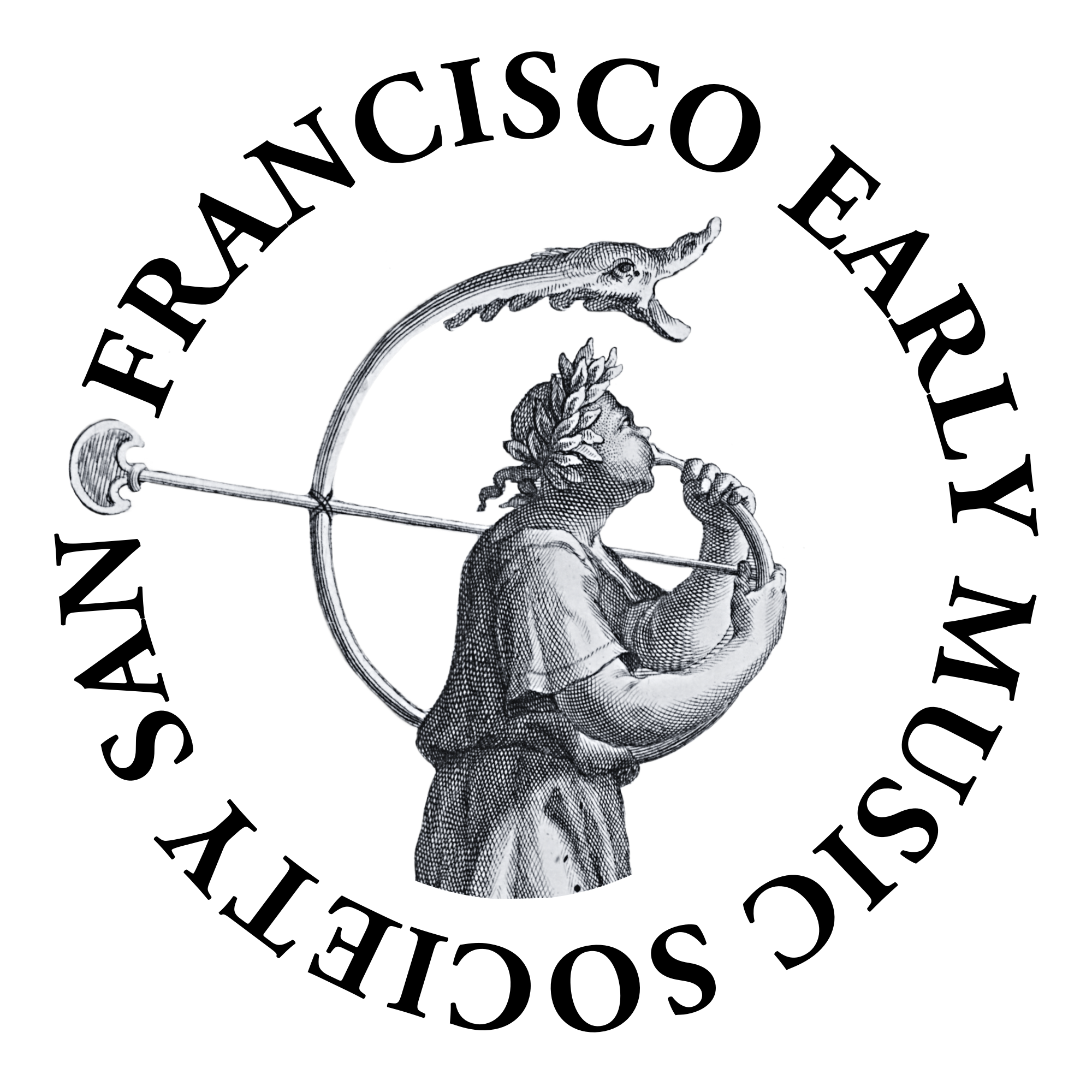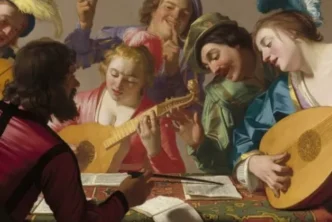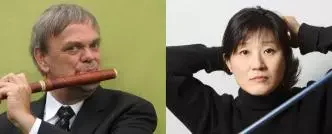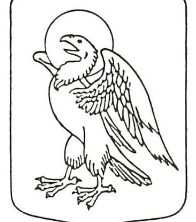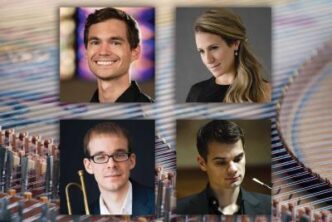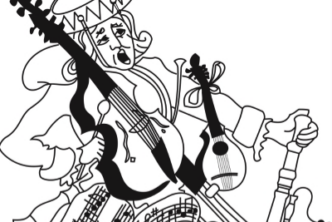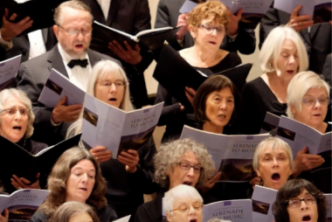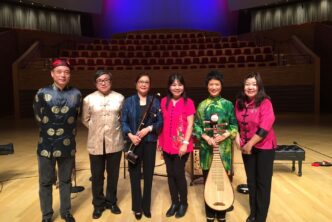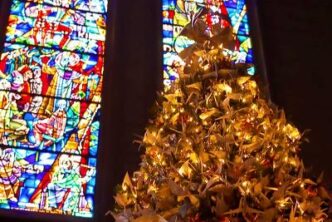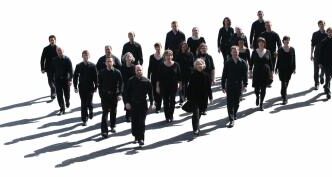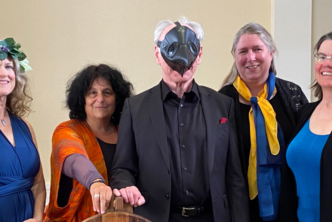Wednesday, Dec 9
Voices of Music — Virtual Class Offering
 “A Woman Inconsolable: Settings of “Comme femme desconfortée” with Rotem Gilbert.” Burgundian composers were eager to set Gilles Binchois’ popular rondeau Comme femme desconfortée, one of the most famous 15th-century chansons, setting a text in the voice of a woman whose lover has been taken by Death. In this class we will explore different intricate compositions, from the original chanson from the 1460s found in the beautiful heart-shaped Cordiforme Chansonnier, to an ornate duo and intricate four-voice setting from the 1490s by Alexander Agricola, and the iconic Agnus of Henricus Isaac’s Missa Comme femme desconfortée, composed in Florence, ca. 1485-88.
“A Woman Inconsolable: Settings of “Comme femme desconfortée” with Rotem Gilbert.” Burgundian composers were eager to set Gilles Binchois’ popular rondeau Comme femme desconfortée, one of the most famous 15th-century chansons, setting a text in the voice of a woman whose lover has been taken by Death. In this class we will explore different intricate compositions, from the original chanson from the 1460s found in the beautiful heart-shaped Cordiforme Chansonnier, to an ornate duo and intricate four-voice setting from the 1490s by Alexander Agricola, and the iconic Agnus of Henricus Isaac’s Missa Comme femme desconfortée, composed in Florence, ca. 1485-88.
11am-12pm PT
Tickets: HERE
Box Office: (415) 260-4687
USC Thornton Early Music — Baroque Sinfonia Concert
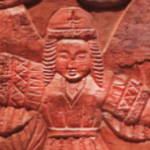 The USC Thornton Baroque Sinfonia presents “Vaya de jacara nueva: Join in a New Dance,” a virtual concert of baroque music from Guatemala and New Spain. Led by Rotem Gilbert, Jason Yoshida, and Jennifer Ellis Kampani, join the ensemble for a festive program of Latin American and Spanish music by Raphael Castellanos, José Marín, José de Torres, Diego Ortíz, and Juan Vasquez.
The USC Thornton Baroque Sinfonia presents “Vaya de jacara nueva: Join in a New Dance,” a virtual concert of baroque music from Guatemala and New Spain. Led by Rotem Gilbert, Jason Yoshida, and Jennifer Ellis Kampani, join the ensemble for a festive program of Latin American and Spanish music by Raphael Castellanos, José Marín, José de Torres, Diego Ortíz, and Juan Vasquez.
7pm PT
Concert information HERE
OR visit https://www.thorntonlive.usc.edu/ on day of to tune in.
Friday, Dec 11
USC Thornton Early Music — Musicology Forum
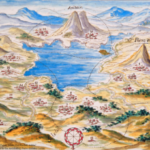 “Silent Music, Secret Writing: An Overview of Old Hispanic Notation and Visigothic Cryptography.” Take an imaginary tour of medieval Iberia, visiting monk scribes, charters, and some music whose sound has been lost forever with Elsa de Luca. Elsa De Luca holds the position of Researcher at the NOVA University of Lisbon, where she is currently pursuing palaeographical research into Iberian medieval notation through the research project ‘A pre-Gregorian musical repertory under scrutiny: neumes, scribes, and books of the Old Hispanic Chant‘. Elsa holds a PhD in Historical Musicology (Università del Salento, 2011) and a Piano Diploma (2002). She has published articles on the notation, cryptography, and liturgy in a selection of Iberian and French manuscripts (10th – 16th cent.). Elsa has collaborated in several research projects in Italy, France, Portugal, the UK, and Canada.
“Silent Music, Secret Writing: An Overview of Old Hispanic Notation and Visigothic Cryptography.” Take an imaginary tour of medieval Iberia, visiting monk scribes, charters, and some music whose sound has been lost forever with Elsa de Luca. Elsa De Luca holds the position of Researcher at the NOVA University of Lisbon, where she is currently pursuing palaeographical research into Iberian medieval notation through the research project ‘A pre-Gregorian musical repertory under scrutiny: neumes, scribes, and books of the Old Hispanic Chant‘. Elsa holds a PhD in Historical Musicology (Università del Salento, 2011) and a Piano Diploma (2002). She has published articles on the notation, cryptography, and liturgy in a selection of Iberian and French manuscripts (10th – 16th cent.). Elsa has collaborated in several research projects in Italy, France, Portugal, the UK, and Canada.
1pm PT
Online: Zoom
Register HERE

